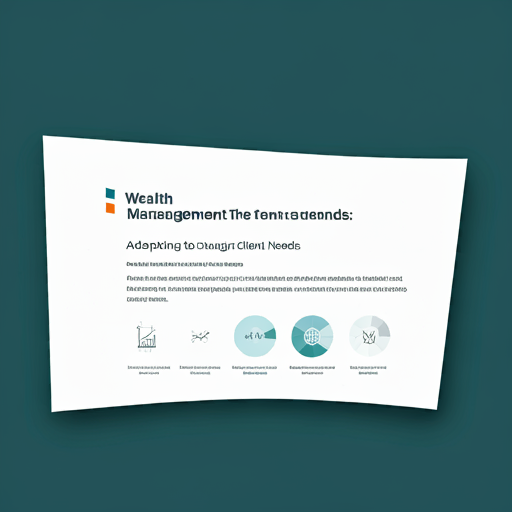Introduction to Wealth Management in the Cryptocurrency Era
Understanding Wealth Management
Wealth management encompasses a range of financial services aimed at enhancing an individual’s financial well-being. In the cryptocurrency era, it has evolved significantly. He must consider digital assets alongside traditional investments. This shift requires a comprehensive understanding of both markets.
Key components include:
These elements are crucial for effective management. Cryptocurrency introduces unique challenges and opportunities. It can be exciting yet daunting. Understanding these dynamlcs is essential for success. After all, knowledge is power.
The Rise of Cryptocurrency in Financial Planning
The integration of cryptocurrency into financial planning has transformed investment strategies. He must evaluate the volatility and liquidity of digital assets. This requires a nuanced approach to portfolio diversification. Traditional asset classes are no longer sufficient.
Key considerations include:
These factors significantly impact financial outcomes. Understanding them is vital for informed decision-making. Knowledge is essential in this evolving landscape.
Current Trends in Wealth Management
Integration of Digital Assets
The integration of digital assets into wealth management is increasingly prevalent. He must recognize the importance of incorporating cryptocurrencies and tokenized assets. This approach enhances portfolio diversification and potential returns. Traditional investments alone may not suffice.
Key trends include:
These trends reshape investment landscapes. Understanding them is crucial for strategic planning. Knowledge empowers informed investment choices.
Personalized Investment Strategies
Personalized investment strategies are essential in today’s dynamic financial landscape. He must tailor approaches based on individual risk tolerance and financial goals. This customization enhances client satisfaction and investment performance. Generic strategies often fail to meet specific needs.
Key components include:
These elements ensure alignment with client objectives. Understanding personal circumstances is crucial for success. Each investor’s journey is unique.
Client Demographics and Their Evolving Needs
Millennials and Gen Z Investors
Millennials and Gen Z investors are reshaping the financial landscape. He must recognize their unique preferences and values. These generations prioritize sustainability and social responsibility in their investment choices. Traditional investment strategies may not resonate with them.
Key characteristics include:
These factors influence their decision-making processes. Understanding their motivations is essential for effective engagement. Knowledge is crucial for informed choices.
High-Net-Worth Individuals and Cryptocurrency
High-net-worth individuals are increasingly exploring cryptocurrency as an investment avenue. He must understand their motivations for diversifying portfolios with digital assets. This demographic seeks high returns and innovative opportunities. Traditional investments may not suffice for their financial goals.
Key considerations include:
These factors are critical for effective wealth preservation. Understanding their unique needs is essential for tailored advice. Knowledge drives successful investment decisions.
Technological Innovations Shaping Wealth Management
Blockchain Technology and Transparency
Blockchain technology enhances transparency in wealth management. It provides a secure and immutable ledger for transactions. This innovation fosters trust between clients and financial advisors. Traditional systems often lack this level of security.
Key benefits include:
These features are crucial for informed decision-making. Understanding blockchain’s impact is essential for modern investors. Knowledge is key to navigating this landscape.
AI and Data Analytics in Investment Decisions
AI and data analytics are revolutionizing investment decisions. They enable precise forecasting and risk assessment. This technology analyzes vast datasets to identify trends. Traditional methods may overlook critical insights.
Key advantages include:
These tools facilitate informed decision-making. Understanding their applications is vital for investors. Knowledge empowers strategic investment choices.
Regulatory Challenges and Compliance
Understanding Cryptocurrency Regulations
Understanding cryptocurrency regulations is essential for compliance. He must navigate a complex legal landscape. Regulatory frameworks vary significantly across jurisdictions. This inconsistency can create challenges for investors.
Key considerations include:
These regulations aim to enhance market integrity. Awareness of these rules is crucial for success. Knowledge is power in this environment.
Adapting to Changing Compliance Requirements
Adapting to changing compliance requirements is crucial for success. He must stay informed about evolving regulations. This adaptability ensures alignment with legal standards. Non-compliance can lead to significant penalties.
Key strategies include:
These measures enhance organizational resilience. Awareness is vital in this dynamic environment. Knowledge fosters proactive compliance management.
Risk Management in Cryptocurrency Investments
Volatility and Market Risks
Volatility and market risks are inherent in cryptocurrency investments. He must implement effective risk management strategies. This includes diversifying asset allocations to mitigate potential losses. Market fluctuations can significantly impact returns.
Key considerations include:
These tactics help manage exposure to risk. Understanding market dynamics is essential for success. Knowledge is crucial for informed decisions.
Diversification Strategies for Digital Assets
Diversification strategies for digital assets are essential for mitigating risk. He should consider allocating investments across various cryptocurrencies. This approach reduces exposure to any single asset’s volatility. Market dynamics can change rapidly, impacting returns.
Key strategies include:
These tactics enhance overall portfolio stability. Understanding asset correlations is crucial for success. Knowledge leads to better investment outcomes.
Building Trust with Clients
Education and Transparency in Cryptocurrency
Education and transparency in cryptocurrency are vital for building trust. He must provide clients with clear information about risks and benefits. This openness fosters confidence in investment decisions. Clients appreciate understanding their financial landscape.
Key elements include:
These initiatives enhance client relationships. Knowledge empowers informed choices. Trust is essential in financial partnerships.
Establishing Long-Term Relationships
Establishing trust with clients is essential for long-full term relationships. Trust fosters loyalty and encourages open communication. Building this trust requires consistency in actions. Actions speak louder than words . Transparency in dealings also plays a crucial role. Honesty is the best policy. Regular check-ins can strengthen connections. Relationships need nurturing to thrive.
The Future of Wealth Management in a Crypto-Driven World
Predictions for the Next Decade
The integration of cryptocurrencies into wealth management will redefine investment strategies. Traditional portfolios will increasingly incorporate digital assets. This shift necessitates advanced risk assessment methodologies. Understanding volatility is crucial
Preparing for Future Client Needs
As the financial landscape evolves, wealth managers must adapt to client demands for cryptocurrency investments. This adaptation requires a comprehensive understanding of blockchain technology. Knowledge is power. Furthermore, integrating digital assets into traditional portfolios can enhance diversification. Diversification reduces risk. Additionally, regulatory frameworks will shape investment strategies in this new environment. Compliance is essential for success.

Leave a Reply